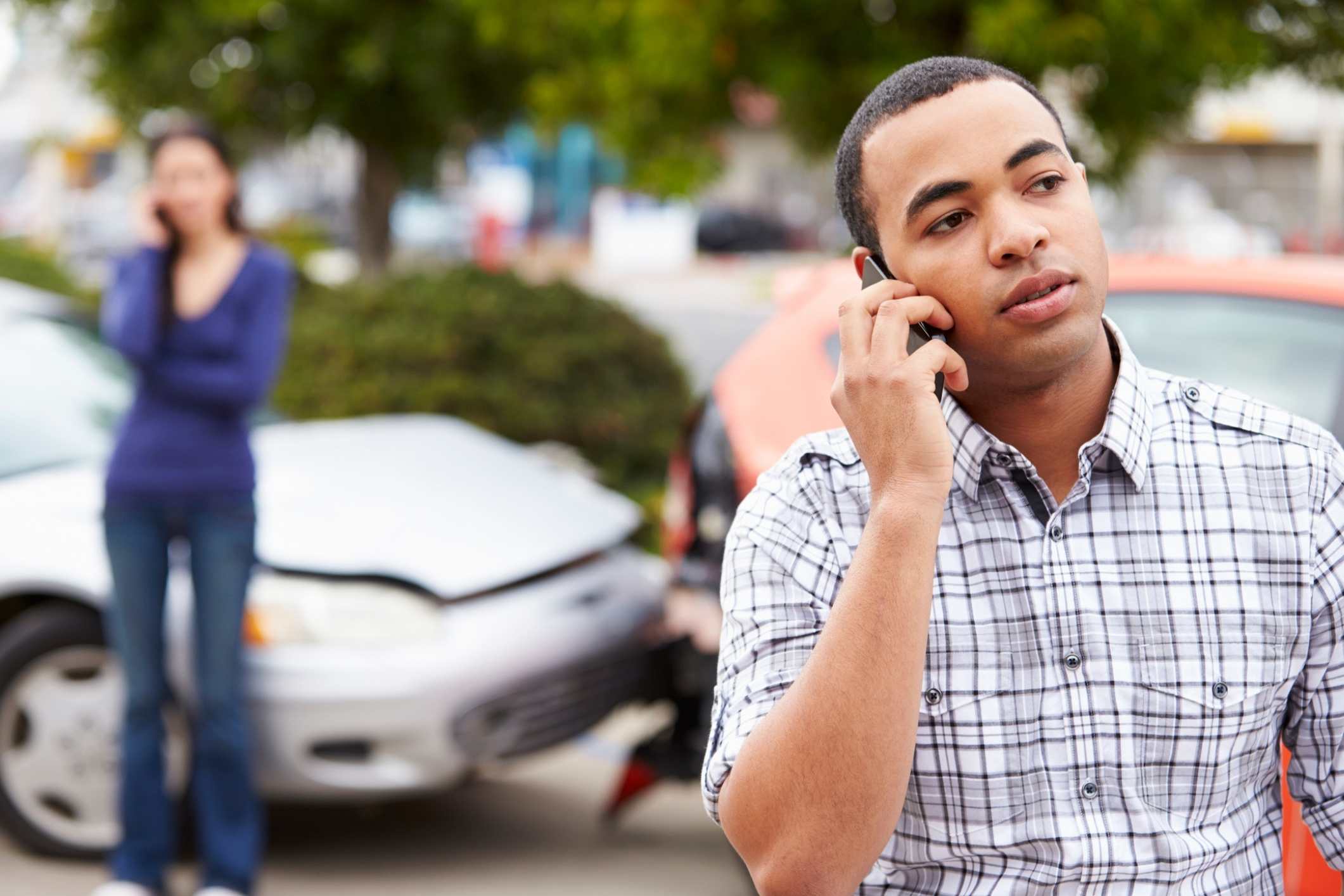Ever been driving behind an 18-wheeler when something goes wrong? Maybe you've seen it happen. The trailer swings out sideways, blocking multiple lanes like a massive steel barrier across the highway.
That kind of crash is called a jackknife accident. It is one of the most dangerous situations you can encounter on Florida's roads.
So what is jackknifing? It occurs when a truck's trailer swings out at a sharp angle from the cab, creating the folded shape that gives these crashes their name. The trailer can rotate 90 degrees or more, turning the truck into a roadblock that cuts across several lanes.
These accidents are often catastrophic. When an 80,000-pound truck suddenly blocks your path at highway speeds, there is almost no time to react.
If you've suffered injuries in a jackknife accident, contact Osborne, Francis, & Pettis at (561) 293-2600 or reach out online today. We offer a free case review and will help you pursue the compensation you deserve.
How Jackknife Accidents Happen
Commercial trucks consist of two main components: the tractor (or cab) and the trailer. They're connected by a pivoting hitch that allows for wide turns and flexible movement. Under certain conditions, that same flexibility becomes a point of failure.
What is a jackknife accident waiting to happen? It begins when the trailer's tires lose grip or when braking forces become unbalanced. Once the trailer starts to slide, momentum takes over. The driver can't steer or stop it, and the trailer continues to swing wide.
The jackknife truck meaning becomes obvious the moment it happens. The truck folds in on itself like a closing blade, and in seconds, traffic is blocked by a moving wall of steel.
What Are the Most Common Causes of a Trailer Jackknife?
Many people searching for what is jackknifing are trying to understand how these accidents occur. Trailer jackknife crashes can be traced to a range of contributing factors. In many cases, the trailer loses traction or stability because of something that could have been prevented with better equipment, more training, or safer driving decisions.
The causes below are among the most common in jackknife accidents.
Sudden Braking
Quick, heavy braking is one of the most frequent triggers of a jackknife crash. When a driver reacts to a hazard by slamming the brakes, the trailer may not slow down at the same rate as the cab. If the trailer is lightly loaded or the pavement is slick, the wheels can lock, causing the trailer to swing out of line.
Wet Roads
Florida receives a significant amount of rain, and wet pavement significantly reduces tire grip. When a trailer loses grip, especially during a turn or sudden stop, it can begin to slide. Recovery becomes difficult once the trailer starts moving independently of the cab.
Excessive Speed
A truck moving too fast for conditions is harder to control. Dry pavement may tolerate high speeds, but those same speeds can create instability when visibility drops or the road surface changes. Speed reduces the driver's margin for error, especially when braking or navigating curves.
Equipment Problems
Failures in braking systems, tire blowouts, or malfunctioning anti-lock systems can upset the balance between the tractor and trailer. When different parts of the truck respond unevenly, the trailer can break traction and shift to the side, increasing the risk of a jackknife.
Driver Factors
Tired or distracted drivers are slower to react and more likely to misjudge timing. Inexperienced operators may overcorrect or brake too sharply. Any delay or overreaction in handling can make it more difficult to keep the trailer aligned with the cab, particularly when road or load conditions are already unstable.
The Devastating Impact of Jackknife Crashes
When a truck jackknifes, the trailer can block several lanes within moments. Nearby drivers often have limited time to respond and few options to avoid impact. A sideways trailer in active traffic creates a high-risk environment for severe collisions.
Jackknife crashes frequently result in head injuries, spinal trauma, fractures, or internal organ damage. Medical care may involve surgery, physical therapy, and extended recovery periods. Some injuries lead to lasting limitations that affect strength, movement, or coordination.
The effects extend beyond physical recovery. Medical appointments, reduced earnings, and changes to daily routines create ongoing logistical and financial stress that doesn't stop when the hospital stay ends.
What You Should Know If You Were Injured
After experiencing what is a jackknife accident firsthand, you're likely wondering who's responsible and whether you have a case. The answer depends on what caused the truck to jackknife in the first place.
- Was the driver following too closely? Truck drivers are trained to maintain safe distances, specifically to avoid sudden braking situations. If they were tailgating when the jackknife occurred, that's negligence.
- Were they driving too fast for conditions? Professional drivers have a legal duty to adjust their speed according to weather and traffic conditions. If they were speeding in rain or failed to slow down for heavy traffic, they may be liable for your injuries.
- Did poor maintenance cause the accident? Trucking companies must keep their vehicles in safe working condition. Brake failures, tire problems, or other mechanical issues that lead to jackknifing can make the company responsible for damages.
- Was the load improperly distributed? Drivers and trucking companies know that empty or poorly loaded trailers are more prone to jackknifing. If they failed to account for this, it could support your claim.
If a jackknife crash happened because of driver error or poor maintenance, you have the right to seek compensation. This includes coverage for medical care, lost wages, and any long-term effects on your health or mobility.
At Osborne, Francis, & Pettis, we take on trucking companies that cut corners and insurers that try to deflect blame. A jackknife accident can leave you dealing with medical bills, missed work, or lasting injuries. Let us step in and pursue the compensation you deserve.
Call (561) 293-2600 or contact us online to start your case review.
Your Legal Rights After a Jackknife Accident
When a jackknife crash is caused by careless driving, poor maintenance, or failure to follow safety rules, the people or companies responsible can be held accountable. If you were injured, you have the right to seek compensation for the harm you've suffered.
Truck accident claims generally involve multiple parties. That may include the driver, the trucking company, a maintenance contractor, or the company responsible for loading the trailer. Each may share responsibility for what happened, and each will have a legal team working to limit exposure.
Trucking companies respond to crashes immediately. They collect internal records, pull data from the vehicle, and begin building their defense, sometimes before you've had a chance to speak with a lawyer. Their focus is protecting their business interests.
Legal representation provides a means to respond. An attorney can identify who was at fault, handle communication with the companies involved, and work to recover payment for your medical care, lost wages, and other damages.
Immediate Steps to Take After a Truck Accident
In the first few days after a jackknife crash, your attention may be pulled in several directions—medical care, vehicle damage, and calls from insurance. That's a difficult position to be in. However, a few specific steps can help protect your health and support your claim as things progress.
- Start with a medical exam. Even if you walked away from the crash, injuries can take time to show up. Pain, stiffness, and dizziness are common signs of deeper issues. The sooner you get checked out, the easier it is to connect those injuries to the collision.
- If you have access to photos of the scene, keep them. Images that show how the truck came to rest, where the vehicles were hit, and what the road looked like can help explain how the crash unfolded.
- Get witness information. A short statement from someone who saw the truck brake late, drift into another lane, or lose control can help establish what led to the impact.
- Avoid giving a recorded statement to insurance right away. These conversations are usually timed to catch you before you've had a chance to gather all the facts. You can tell them you'll respond after consulting with an attorney.
- Skip posting about the crash on social media. Even a simple message can be misread and used to question the extent of your injuries.
- Write down what you remember. Start with what you noticed about the truck just before the crash—its speed, position, or any sudden movement—and note the conditions around you: traffic, weather, time of day, and anything else that stands out.
Taking these steps early can make it easier to explain what happened, support your account, and push back if an insurance company tries to dispute your claim.
Decades of Experience Handling Jackknife Truck Accidents
Trucking companies have teams of lawyers and investigators working to protect their interests from the moment an accident happens. You deserve the same level of representation fighting for your rights.
At Osborne, Francis, & Pettis, our attorneys bring decades of experience representing people injured in jackknife truck accidents. We understand what leads to these crashes in Florida and how to hold the companies involved responsible.
If a jackknifed semi truck left you with serious injuries, medical bills, or time away from work, our attorneys are ready to step in and help you pursue the compensation you deserve.
Call Osborne, Francis, & Pettis at (561) 293-2600 or contact us online for a free case review.

.avif)












.avif)


.svg)



